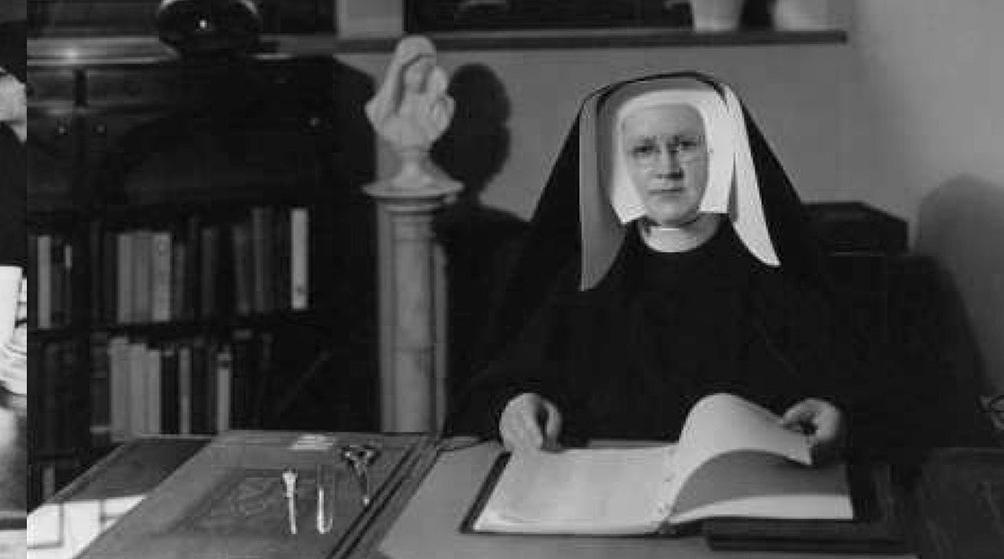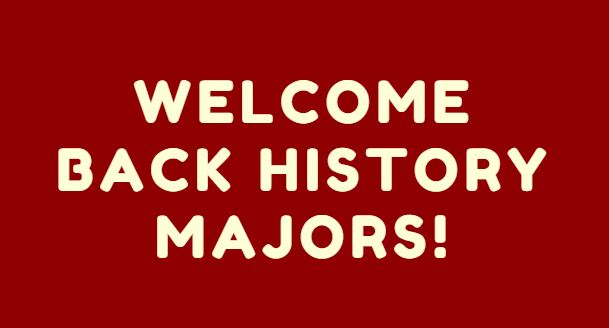archive
.png)
EVENTS
Whale Watching in the Medieval North Atlantic
On Monday, February 4, join Dr. Vicki Szabo, author of Monstrous Fishes and the Mead-Dark Sea: Whaling in the Medieval North Atlantic (Brill, 2008), for an exciting lecture exploring marine mammal use and populations in premodern Europe! This talk is the first "Medieval Environments" lecture of the semester, a collaboration between Loyola's Medieval Studies Center and Institute for Environmental Sustainability.
DETAILS
EVENTS
Where Historians Teach Panel Discussion
Thinking about careers? Currently on the job hunt? Join us on Tuesday, April 9 at 4pm in Cuneo 312 for a panel on "Where Historians Teach: A Discussion About Teaching Careers for Historians in Secondary Ed, Higher Ed, and Public History." Panelists include: Sarah Doherty, PhD, Assistant Professor of History at North Park University; Bryan Escobar, MA, Public Historian, Arts and History Specialist, Waukegan Park District; Amelia Serafine, PhD, Instructor, San Antonio College; Charles Tocci, PhD, Assistant Professor, School of Education, Loyola University Chicago.

SPOTLIGHT
Voices from Mundelein: Media Portal
This past summer, graduate students Jenny Clay and Nathan Ellstrand worked with the Women and Leadership Archives to create the Voices from Mundelein: Media Portal. Showcasing images alongside more than 30 interviews, the site shares the stories of women religious, students, staff, and faculty from Mundelein College.
VIEWHistorians in the Field: Ramblers at the 2019 AHA Conference
The American Historical Association took Chicago by storm this month and the Ramblers were there to greet them.

EVENT
Welcome Back Night for History Majors
All history majors are invited to attend a welcome back info session on September 11 at 4 PM in Crown Center 528. Learn more about the program, what requirements are needed to graduate, what you can do with a history degree post graduation, and ask any other questions you may have about the program.
DETAILSProf. Theodore Karamanski Honored with Lifetime Achievement Award
Dr. Theodore Karamanski, Professor of History and Director of the Public History program at Loyola, was awarded the Frederick Jackson Turner Award for Lifetime Achievement in Midwestern History on June 6, 2018.
The prestigious award is awarded yearly by the Midwestern History Association, and honors senior scholars “whose work carries forth Turner’s interest and influence upon the practice of Midwestern history across multiple professional dimensions.” Karamanski has had a prolific career, as an author, a public historian, and a professor. He co-founded the first public history program in the Midwest at Loyola, was a founding board member of the National Council on Public History, completed more than $1 million in external public history grants in contracts, authored 10 books, articles in 16 different journals, and is one of the few historians to be published in Science magazine. He has also served as a mentor to many students beginning careers in Public History over the years.
Hearing that the Midwestern History Association would award him this honor, Karamanski said it was “unexpected but gratifying news.”
Q: What has been your proudest accomplishment over the course of your career?
A: I cannot say there is one thing that is the proudest accomplishment, save perhaps being a member of the Loyola University history faculty and having the opportunity to work with our students. When I was one of those students many years ago, that was sort of a fantasy. I suspect that in that regard I am different from my distinguished colleagues in that my ambitions were channeled in Loyola's direction from the start. Of course, I am also very proud of accomplishments of our public history graduates, which was particularly on display at the National Council on Public History meeting in Las Vegas this spring. As a writer, I am proud of books I have penned, especially my fruitful collaborations with Eileen McMahon. To be able to be a partner with your wife in life as well as professionally is special.
Q: How have you managed to balance such different aspects of your career: writing, teaching, and public history?
A: The fun part of the job I have at Loyola is being able to do all three. Public history is the glue that holds it all together because public projects determine what I research. When you do public history, to some extent you surrender one of the things most scholars prize dearly--the ability to choose the subject of your next book or article. When I began my career I thought of myself as a historian of Canadian history and the fur trade. A traditional scholar might have made that the basis for a career. My job at Loyola in the early 1980s, however, was setting up a public history program so when the USDA Forest Service needed someone to evaluate historic sites from the 19th century logging industry I saw the potential for projects to do with Loyola graduate students and I learned forest history by doing it. When the projects were done and our reports written, I felt there still was a broader story that needed to be told, so I did further research and produced the book Deep Woods Frontier to bring forward a new interpretation of Michigan's lumber industry. That has been the way all my book projects have developed. First, a public history project on something that was a new intellectual challenge. Then, developing the resulting research into a book. It was student projects that got me into the Civil War and maritime history. It was public history contracts that gave me the opportunity to build on an earlier interest in environmental and Indian history.
Q: What advice do you give to people just starting their careers as historians?
A: Important to the success that I have been fortunate enough to enjoy is being open to new challenges. Do not let the discouraging circumstances of the present define your future. There are open doors to a career in history, particularly for those who are willing to explore unconventional corridors. It goes without saying, however, it takes a lot of work. Often it is only fun in retrospect.
